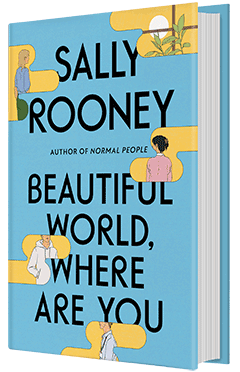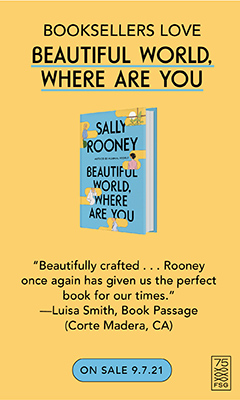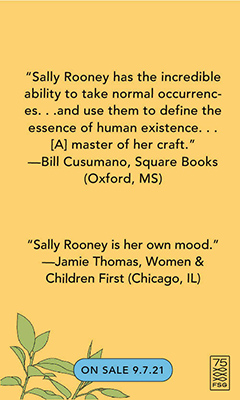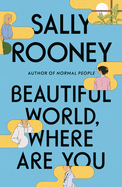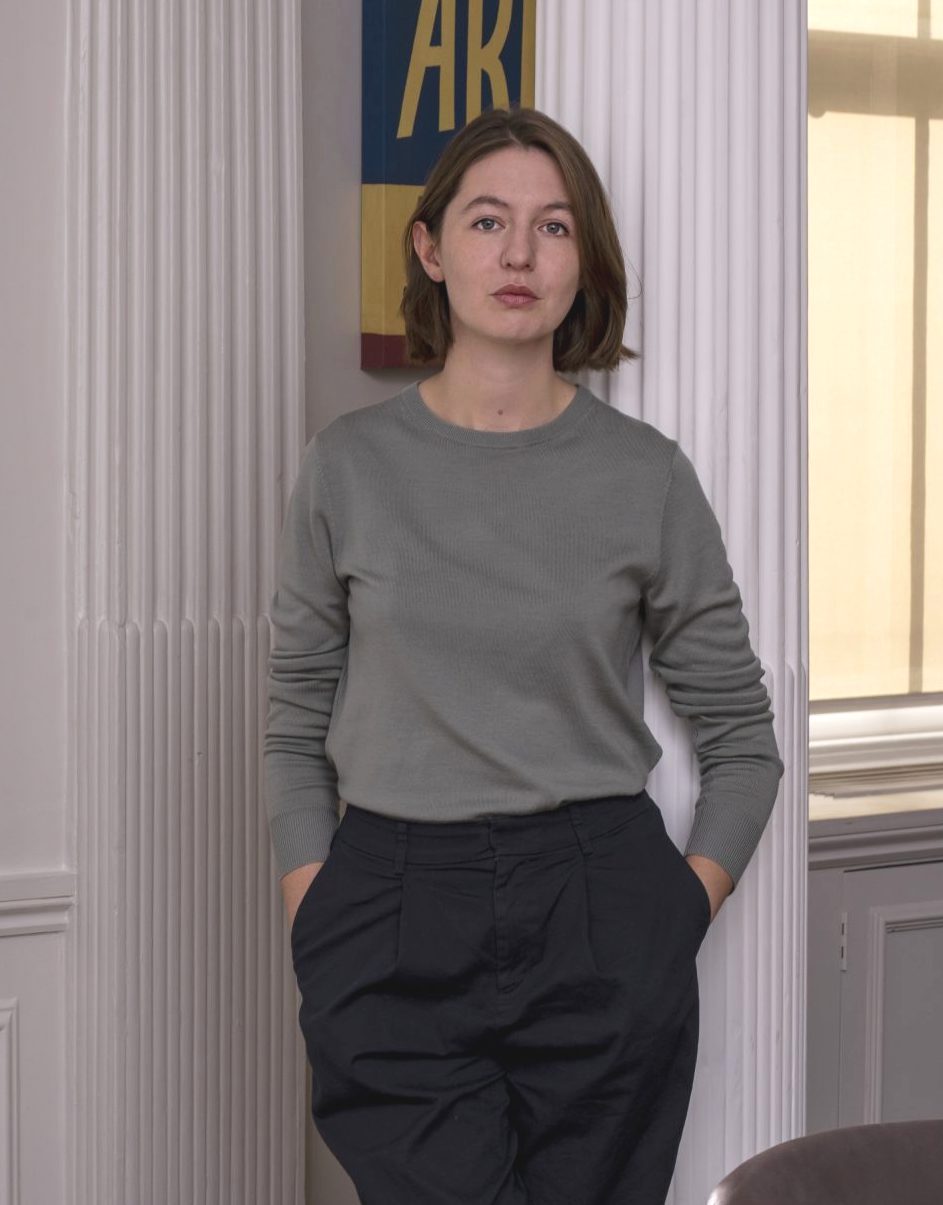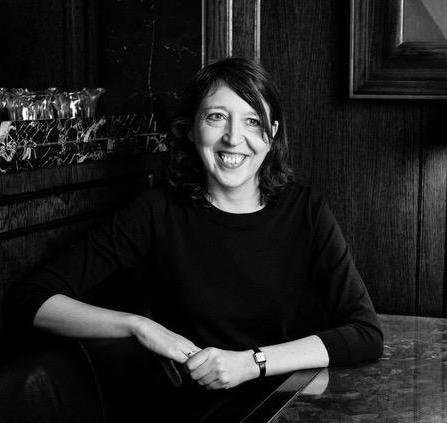Beautiful World, Where Are You
by Sally Rooney
In Beautiful World, Where Are You, Sally Rooney (Normal People; Conversations with Friends) explores what it is to live in the 21st century--to come of age in an era of climate change and political extremism, and to long for the simple, happy things that were once considered the hallmarks of a successful life: love, a career, perhaps a house.
The four main characters in Rooney's excellent, well-realized novel are all 30-somethings, or thereabouts (millennials, though that's not a term Rooney applies to her characters, or her characters to themselves). Alice is a writer, retreated to the Irish countryside to live by the sea after publishing two successful novels and having a breakdown vaguely attributed to stress or depression or a breakup with her girlfriend or some combination of them all. In her new town, she meets a local man named Felix on Tinder; the two share a mostly unsuccessful first date before slipping into a relationship that flits between friendship and romance. Alice's longtime best friend, Eileen, lives in Dublin, where she can barely afford the rent despite her job with a literary magazine. The fourth of this magpie collection of friends is Simon, who has known Eileen since childhood, and has always had a crush on her.
"At times I think of human relationships as something soft like sand or water," says Alice to Eileen in an e-mail, "and by pouring them into particular vessels we give them shape." Rooney, in Beautiful World, Where Are You, rejects these very vessels, instead capturing the very real--and very complicated--nuances of four new adults working to build their lives both individually and as part of a larger civilization.
That civilization, though, is on the cusp of collapse, a fact that is at once a vague and fleeting idea to each of Rooney's characters and also central to their identities. "I know we agree that civilisation is presently in its decadent declining phase," Eileen writes to Alice. "The air we breathe is toxic, the water we drink is full of microplastics, and our food is contaminated by cancerous Teflon chemicals. Our quality of life is in decline, and along with it, the quality of aesthetic experience available to us."
Against the backdrop of a failing world, Eileen asks: How is one expected to live? To work and pay bills and think about sex and friendships? She posits that the "problem of the contemporary novel" is the same as the "problem of contemporary life," tending toward a "vulgar, decadent, even epistemically violent [investment of energy] in trivialities of sex and friendship when human civilisation is facing collapse."
Eileen writes this in response to Alice, herself a novelist, suggesting that to care about one thing is to cease to care about the rest: "So the novel works by suppressing the truth of the world--packing it tightly down underneath the glittering surface of the text. And we can care once again, as we do in real life, whether people break up or stay together--if, and only if, we have successfully forgotten about all the things more important than that, i.e. everything."
Beautiful World, Where Are You stands in defiance of its own characters' musings about the nature of the contemporary novel. Here is a contemporary novel that may try, on its surface, to suppress the truth of the world--that of impending climate change and political extremism and a glut of planet- and aesthetic-ruining plastics--to tell readers a story of sex and friendship (sometimes sex and sometimes friendship, and sometimes sex in friendships). But Rooney's genius is in her failure to suppress that same truth, revealing the ways it seeps into every corner of these characters' lives as they grapple with finding a balance between the very big and very real problems of this moment in time (Alice and Eileen even exchange e-mails throughout the lockdowns of 2020) and the seemingly small--yet still important--problems of everyday life.
Beautiful World, Where Are You could be considered a novel of modern technology, which it is, or a millennial story, which, given the age of its characters, it also is. But it does not fit quite so neatly into one description or another, because the search for depth and meaning in a life is universal, despite its specificity to the year(s) in which it is set. These four characters lift their phones and set them down; browse the social-media pages of ex-boyfriends and write each other long, meandering e-mails about the meaning of life; swipe right on Tinder and sleep with their childhood best friend. In Rooney's capable hands, these details of the lives of four friends are twined together without judgment, presented instead as a comment unto themselves: this is life, Beautiful World, Where Are You, seems to say. The beautiful world is right here--even when it isn't so beautiful at all. --Kerry McHugh



